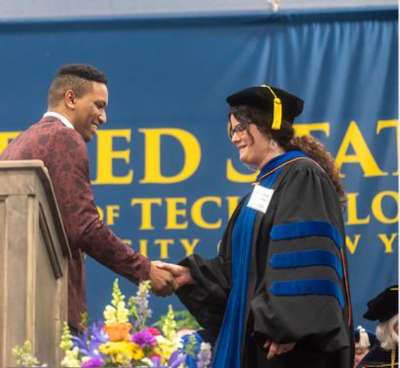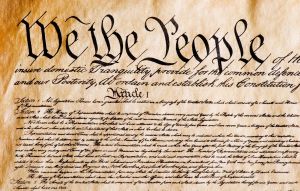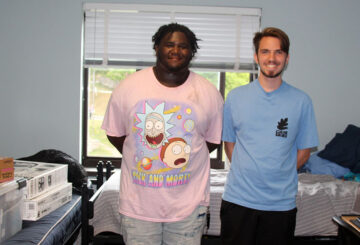By Dr. Angela Graves
I have been studying and teaching Constitutional Law for over 15 years and have read Roe v. Wade and other related decisions closely. It is important for us all to remember that our liberty is tied to our mutual respect for one another’s privacy. What is the saying? You can either be right or be happy. Our founding documents are very clear: your right to live your life according to your personal and religious beliefs is contingent on you accepting the right of others to do so as well. This includes whether or not you believe that life begins at conception. In other words, if no one is allowed to claim that they are right and others are wrong about such topics, we all can be happy. This is what Thomas Jefferson meant when he enshrined the unalienable right to the pursuit of happiness in the Declaration of Independence and it is at the foundation of our social contract.
I stick to this principle as universally as possible, and as a result I consider myself a good citizen. Cherry picking what freedoms you’d like protected and which ones you want to take away from others violates the tenets of all moral systems and involves a level of time and arrogance that none of us should have. Our future depends on us all exercising our fundamental, mutual responsibility to one another to mind our own business in regard to private matters and resist nefarious attempts to divide us based on them.

For those who have not taken the time to read the original Roe decision, it is grounded in the private decision between a patient and doctor to determine the best possible outcome in that particular situation and protect a fundamental right – not abortion, but any decision related to sex and reproduction – from unreasonable regulation by government. This was the Court’s primary concern and it created a reasonable and limited framework in which those private decisions were protected.
I see so many people who are okay with the fall of Roe say “but I still support access to contraception, and/or abortion in cases of rape, incest, and/or for medical reasons.” A state legislature can certainly protect those things, but we already see plenty that are unwilling to do so. We should all be extremely skeptical of the idea that any political body that has already taken away rights can be trusted to refine or restore them. This is why providers have refused to provide medication or perform a D&C after miscarriages and ectopic pregnancies in states and countries with tight bans. Once any kind of unreasonable restriction is in place, there is a chilling effect and we have already started to hear the first of many unacceptable accounts of women being denied reasonable treatment after these traumatic events.
Furthermore, what about failures in birth control? People who don’t have access to it? In the Dobbs opinion, Justice Thomas clearly states that he’d like to see this same ruling extend to bans on contraception. Again, many states have already headed in that direction. Even if providers are able to continue to offer birth control or treatment for unviable or miscarried pregnancies, pharmacists are allowed to refuse to fill prescriptions and do so regularly. Again, this is already happening as those who are personally opposed to abortion feel more empowered to apply those private views in their professional roles.
Policy aside, I understand that this is not about me and my personal emotions on difficult issues. I have found a way to accept that I don’t have the answers. We are all entitled to our views, and we are all students of and participants in democracy. In my classes, I always make that clear above anything else. Again, I’d rather strive to be happy than right. I work hard to reserve judgment and give respect to others for their personal choices, but I expect the same in return. I could get a time machine, invite you into my doctor’s office, and let you pass judgment on my past reproductive choices. I was lucky to have them, and I would not consider myself a free person if I had not. I’m happy to talk to anyone in private about that. I can answer for myself, but I can’t for others. The lawmakers and Americans who seem to think these matters are their business certainly cannot either.

Dr. Angela Graves, Assistant Professor of Global and Diversity Studies at Alfred State College where she recently received the Student Advocate Award.






